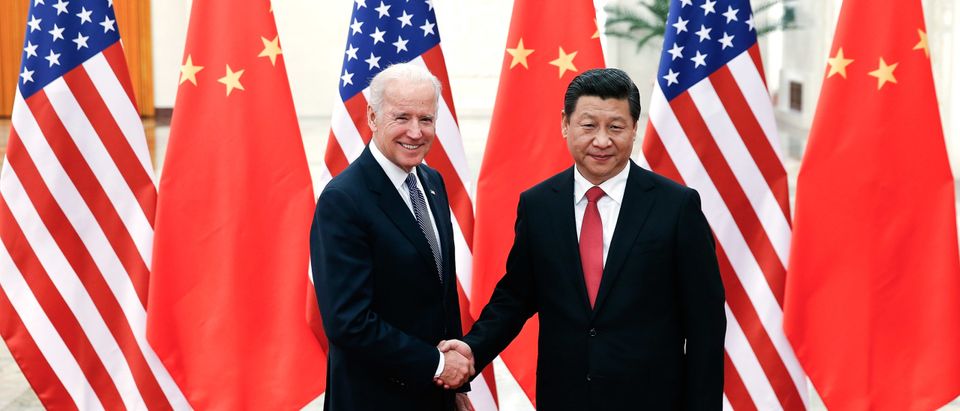The Chinese Ministry of Foreign Affairs (MFA) made its pitch to President-Elect Joe Biden on Tuesday, saying the incoming administration provided “hope” of a return to normal relations.
The MFA made the statement through the official Twitter account of the Chinese Embassy in the U.S. The statement called for further cooperation between China and the U.S. on “upholding world peace” and combating the coronavirus. Chinese leader Xi Jinping and his ruling Chinese Communist Party (CCP) were said to have favored Biden in the presidential election against President Donald Trump. (RELATED: Kayleigh McEnany Rips Swalwell, Democrats For Being ‘Under Control’ Of China)
MFA spokesperson: As two major countries, China and the US share extensive common interests in upholding world peace and stability and promoting global development and prosperity. Cooperation between the two sides can make good things happen for both countries and beyond.
— Chinese Embassy in US (@ChineseEmbinUS) January 5, 2021
The two sides have enormous room for cooperation in such areas as epidemic response, economic recovery and climate change, if not in all fields. As State Councilor Wang Yi pointed out, China-US relations have come to a new crossroads, and a new window of hope is opening.
— Chinese Embassy in US (@ChineseEmbinUS) January 5, 2021
We hope the US side will work with the Chinese side to focus on cooperation and manage differences, and bring bilateral relations back to the normal track at an early date.
— Chinese Embassy in US (@ChineseEmbinUS) January 5, 2021
The Trump administration has raised tensions with China since day one, but Trump escalated his anti-CCP rhetoric after the coronavirus spread out of China to become a pandemic in early 2020.
One of the central pillars of Trump’s foreign policy pitch during his campaign was that Biden victory would mean “China owns us.” But while the CCP’s statement echoes the “return to normalcy” language that both Biden and his secretary of state nominee Tony Blinken have used in recent weeks, the parties may have different meanings.
Since his nomination, Blinken has criticized what some have called Trump’s “isolationism,” arguing the Trump administration has burned bridges with allies and compromised American global leadership. Return to normalcy here means Biden’s administration will seek to shore up relations with allies and reassert leadership in international institutions like the United Nations and NATO, organizations Trump had little interest in.
But China may not be so fortunate as to expect a return to its pre-Trump economic relationship with the U.S. Although Biden has not been as critical of the CCP as Trump, he has vowed to bring jobs back to the U.S. from overseas and impose consequences for companies that go offshore.
Biden also signaled a China-critical foreign policy stance in late December when he requested that the European Union hold off on entering a trade deal with China until he was in office. The E.U. snubbed his request, however, and approved the deal last week.
That deal won’t go into effect until 2022, however, meaning the first indicator of Biden’s long-term policy toward China will be how his administration influences the European Parliament’s debate on the deal. There are pro-China and anti-China factions within the E.U. vying over various aspects of the deal, led by Germany and France respectively.



